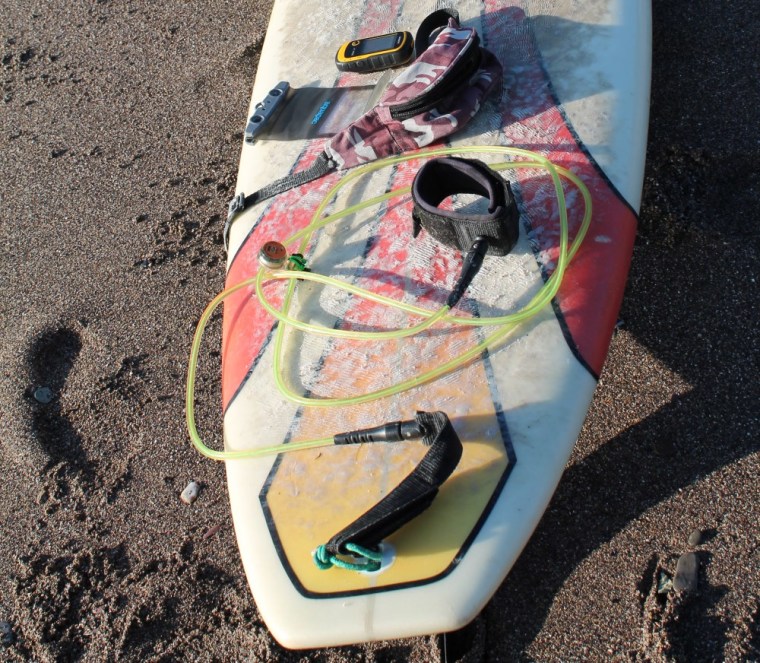The next big source for data on coastal waters could be the people swimming and paddling in those waters. A new system created by British researchers relies on measurements made by temperature sensors attached to surfers and their boards. A GPS unit on the surfer and a thermometer on the board's leash (which often drags in the water) provide localized info that's valuable in predicting various oceanic effects.

"Sea-surface temperature controls the water density, which controls currents and therefore transports pollutants," said study leader Bob Brewin, from the Plymouth Marine Laboratory. "It also affects biological productivity, which in turn affects the growth of all marine animals, from bacteria to fish."
Satellites can determine ocean temperature, too, but near the coast, data taken directly from the surface is more reliable.
Related: Autonomous Ocean Water Testing Technology Wins $1.5M XPRIZE
Surfers get something out of the deal as well — the software lets them track speed, waves ridden and other factors. Other watery pursuits, like kayaking and even fishing, could also contribute data — but Brewin, himself a surfer, decided to start with what he knew best. "Our next steps will be to expand the project with more sensors and more surfers," he said.
The research was published earlier this month in the journal PLOS ONE.
